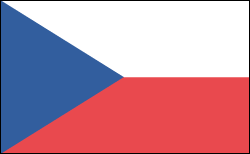Czech Republic History


Havel Leaves Office After 13 Years as President
President Václav Havel left office in Feb. 2003, after 13 years as president. Over the years, Havel lost some of his immense popularity with the Czechs, who became disenchanted with his failings as a political leader. But internationally Havel has remained a towering figure of moral authority and courage. In March, Václav Klaus became the Czech Republic's second president. A conservative economist, he and Havel often clashed. In May 2004, the Czech Republic joined the EU. After an inconclusive election in June 2006, the political deadlock was broken in August, with rightist Mirek Topolánek appointed prime minister. His government resigned in October, after losing a no-confidence vote. He formed another government in January 2007. A year later, Topolánek's government narrowly survived another no-confidence vote.
On July 8, 2008, after lengthy negotiations and much debate, the Czech Republic agreed to allow the United States to deploy on its land an antiballistic missile shield. Russia strongly objected to the accord, which views the system as a threat. U.S. officials said the shield is meant to deter an attack from Iran. Czech lawmakers must approve the deal.
While the Czech Republic held a six-month rotating term as President of the EU, the government collapsed and Prime Minister Mirek Topolanek resigned after his center-right government lost a parliamentary vote of confidence in March 2009. In May, Jan Fischer, an economist, became the head of a caretaker government, which he ran for more than a year, until elections in May 2010. The left-wing Social Democrats (CSSD) fared best in the general election, but did not take a majority and thus could not form a government. The Civic Democratic Party (ODS), which placed behind CSSD, entered into a coalition with the right-wing TOP 09 and centrist Public Affairs. In June, ODS leader Petr Necas became prime minister. Facing a growing deficit, Necas proposed a 10% pay reduction for public workers and strict spending cuts. The move sparked massive protests.
Former president Václav Havel died in Dec. 2011.







